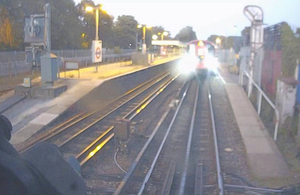“Events, Dear Boy”: managing incidents before they become crises
Introduction
You will probably recognise the quote. When Prime Minister Harold Macmillan was asked what was the greatest challenge for a statesman, he replied: ‘Events, dear boy, events’. The same is true for most leaders and organisations.
Events Happen. When they do a lot of things are at stake: lives, livelihoods, reputation. So knowing how to respond is a key survival skill for leaders and organisations of all kinds. In my own career I have learnt many of my most important lessons – including how to manage incidents – the hard way: by making mistakes. As President Kennedy liked to say: “Good judgement is usually the result of experience. And experience is frequently the result of bad judgement”.
I hope you will find the lessons I have learnt useful in your own world. And whatever world that is, whether it’s government, business, the NGO sector or something else, and whatever your own organisation does, I submit that knowing how to manage incidents is something that will come in handy. That’s because, to quote a third and slightly less successful political figure, Leon Trotsky, you may not be interested in war, but war is interested in you. Incidents, like events, have a habit of happening whether you like it or not.
So my aim today is to give you News You Can Use. I will outline how the Environment Agency handles incidents; give you my Top Tips for good incident management; and tell you how we in the EA are managing the unique challenges of Coronavirus.
The EA’s role in incidents
The Environment Agency is a Category One emergency responder under the Civil Contingencies Act 2004. We work with the emergency services, the local authorities and other partners to plan for, respond to and aid recovery from emergencies affecting people and the environment across the country. Often we are the sole or lead responder, but on many occasions we are part of a coalition working with our professional partners in the 38 Local Resilience Forums across England.
We handle a wide variety of incidents. They include:
-
Pollution – fires, oil spills, radiation, nuclear, waste dumping, odours, noise, pollution of water courses. Examples: the Buncefield explosion at an oil storage facility in 2005, the serious pollution of the Thames by Thames Water in 2013 and 2014 for which they were eventually fined £20m, the Grenville Tower fire in 2017, the Salisbury Novichok attack in 2018.
-
Wildlife – threats to animals and habitat. Examples: Foot & Mouth Disease 2001, drought in 2018.
-
Water – too little and too much. Examples: managing the risk of environmental damage from drought, which we did in summer 2018 and are doing again right now; the risk to people from the Toddbrook Dam damaged in the 2019 downpours; and protecting and supporting communities affected by the February 2020 floods.
We handle a lot of incidents. Last year 76,777 were reported to us, which is one every 7 minutes. And we deploy our people to many of those: on average, an incident requires our attendance once every 40 minutes and about 5 incidents every week require significant deployment of our resources.
Our response depends on the incident. But we will always focus on the protection of lives, livelihoods and the environment. In big incidents we deploy a lot of people and a lot of hardware, including Incident Control Vehicles, pumps, temporary flood defences and drones.
Because we do a lot of incident response we are set up as an organisation to do that. We have daily reporting of significant events, so that all the key players can see what is happening and how we are responding. We have standard incident management procedures, with agreed command and control, so everyone knows who is responsible for what. We have over 6,000 of our staff trained and ready to join the response on whom we can draw. We have dedicated facilities at national and local level that we use to manage each incident. We have pre-agreed plans for how we will respond to particular types of incident. We practice, including with the military. And we measure how well we are doing: our capacity to respond well to incidents is one of our Key Performance Indicators.
Since I became Chief Executive in 2015 we have put a lot more emphasis on incident response, and more resources into it. We now respond to more incidents, more quickly and in greater numbers than ever before, and we have made incident response a core part of our business as usual. That is not accidental. Handling incidents well can save lives and livelihoods. Handling them badly can get people killed and ruin your organisation’s reputation.
Top Tips for Incident Management
As I said, much of what I have learnt about incident management during my career has come as much from making mistakes as it has from getting it right. So I offer the following
Top Tips with a large degree of humility
Lead:
if you are your organisation’s leader, you need to lead the response to a big incident. Don’t try and do the day job as well. The incident is the day job till it’s over. This is the moment when your organisation’s reputation will be won or lost, possibly for ever. So it’s worth your time. Be decisive: be prepared to take big decisions. In an incident the biggest risk is not taking a decision that later proves to be wrong (some always will): the biggest risk is not taking a decision at all, or taking it too late. You will not have all the facts: decide anyway.
Move fast:
Flick the switch early to put your organisation into incident mode. If you don’t get ahead of the curve you will never catch up. So over-resource at the start: people, kit, whatever. You can always scale back later. Establish your battle rhythm immediately – which meetings when with whom to do what – and clear roles and responsibilities.
Get on the ground:
The absent are always wrong. Being present and visible at the scene of an incident is as important as what you do when you get there. So get yourself and your team to the scene as soon as possible.
Have a strategy:
Be clear what your goals are and ensure everyone in your team knows. Be ready to adjust your strategy as the situation changes, because it will.
Win the air war:
The media battle (the air war) is as much a part of the incident as your operational response (the ground war). You need to win both. So use the media: don’t shy away from it. Have a simple message and keep on saying it. Get the tone right: calm, authoritative, empathetic, commitment to do what’s needed. Accept the inevitability of critical reporting: it’s not personal. It will go away.
Manage upwards:
We all have bosses. Tell them what you are doing and listen to what they want.
Stay well:
Look after your staff’s wellbeing and your own. Ensure everyone is fed and watered and gets a break, including you. Tired people make bad decisions.
Be ready beforehand:
Have an incident plan and practice beforehand. No plan will survive contact with reality, but it’s better than not having one. Time spent in preparation is never wasted: what you do in peacetime is reflected in how you perform during the incident.
Learn the lessons afterwards:
It will never be perfect. But each time you do something right or wrong, you will learn valuable lessons for next time. Do a wash up afterwards, write down the main lessons and keep them handy. You will need them again.
I can sum all this up in six words we use in the EA to guide our incident response: Think Big, Act Early, Be Visible.
Coronavirus: a test case happening now
Lastly, a word about how the Environment Agency is managing one of the biggest incidents ever in peacetime: the Coronavirus epidemic.
We are running our response to this as an incident, using the tried and tested incident machinery I have described.
We set ourselves three clear strategic goals at the start. They are to sustain our critical operations which protect lives and livelihoods; to protect the health, safety and well-being of all our staff and the public; and to remain agile, adjusting our response as necessary in the light of developments.
There are three main challenges with Coronavirus, which I expect all of you are encountering in your own organisations.
The first is strategic: managing in ambiguous circumstances. There is still a lot we don’t know: about the virus, about how long social distancing will be necessary, about the longer term government response, about how the economy will cope, and how the businesses and partners we work with will react. Which is why we need to stay agile.
The second challenge is operational. Most of the EA’s work didn’t stop during the three months of lockdown. But how we did much of that work did change, as we moved most of our staff into working from home. Getting our people back to the workplace – both to the outside workplaces we operate in and our offices – has proven to be a lot harder than withdrawing them. For good reason: we need to do it right, including ensuring that all the necessary social distancing and hygiene measures are in place. That is why we are moving with deliberate pace.
And the third challenge is the humans: maintaining staff well-being, purpose and morale. Most Environment Agency people are pretty resilient. But they are also very committed to doing their jobs and most are keen to get back to the workplace, which for many may still be some months away. Many have caring responsibilities. Some have welfare needs which cannot be met at home. So as lockdown goes on it’s got harder for everyone. Our strategy for managing that is maximum empathy (our key message to staff is to Be Kind – to themselves as much as others), relentless over-communication, and practical steps to improve the experience of all staff, whether they are working from home or back in the workplace.
Conclusion
I started with three quotes from the world of politics. Let me finish with one from the world of sport – American football in fact. This is from Bear Bryant, often considered the greatest college football coach of all time: “In a crisis, don’t hide behind anything or anybody. They’re going to find you anyway.”


